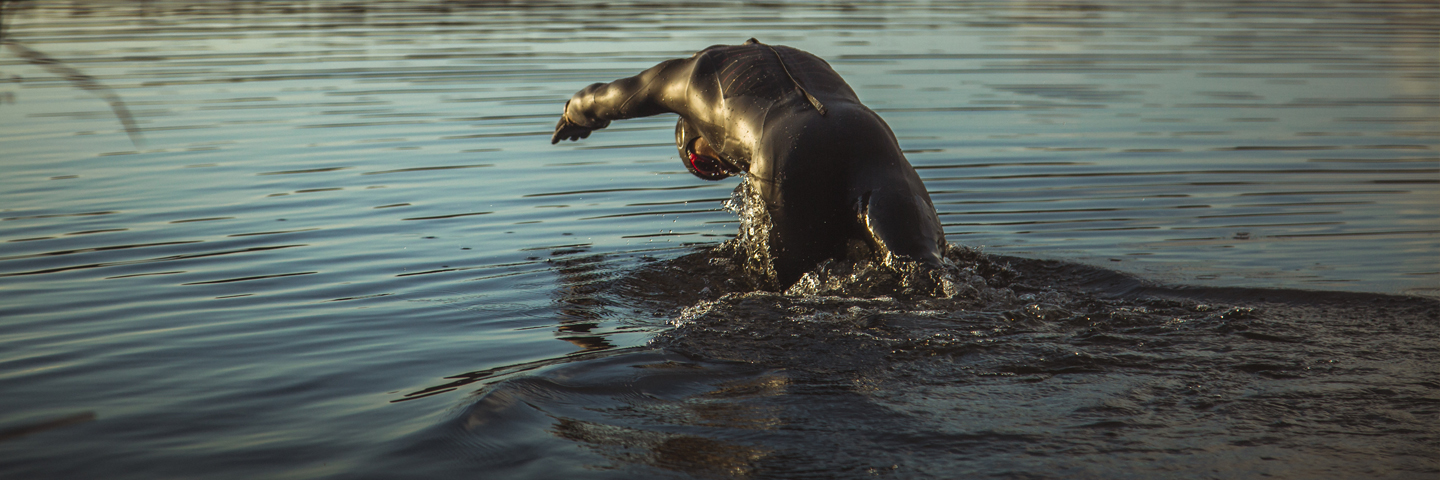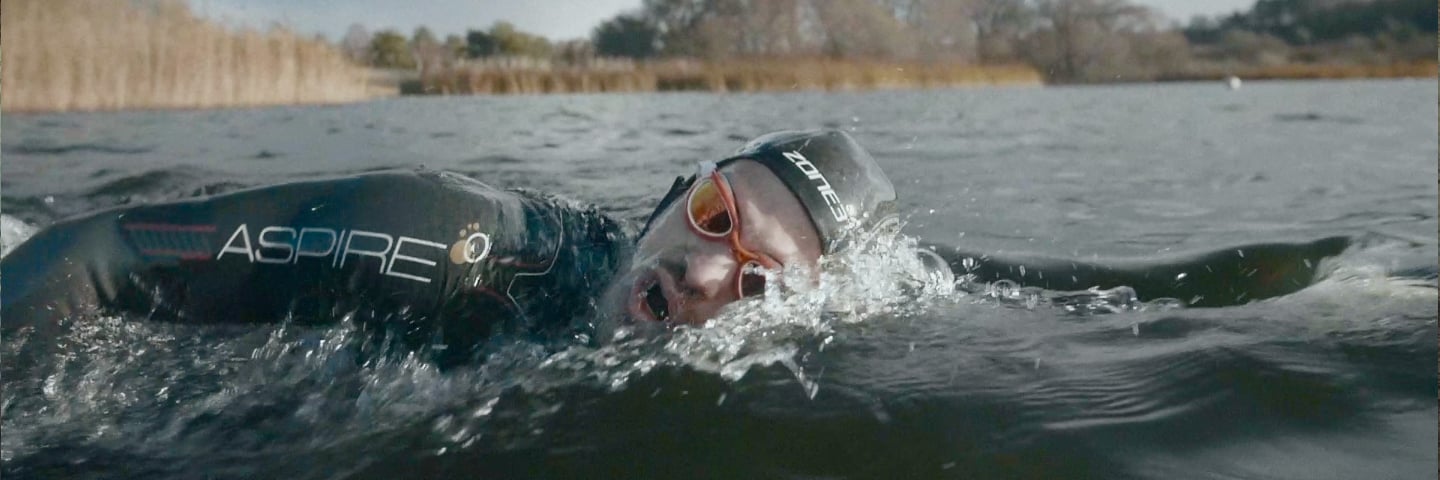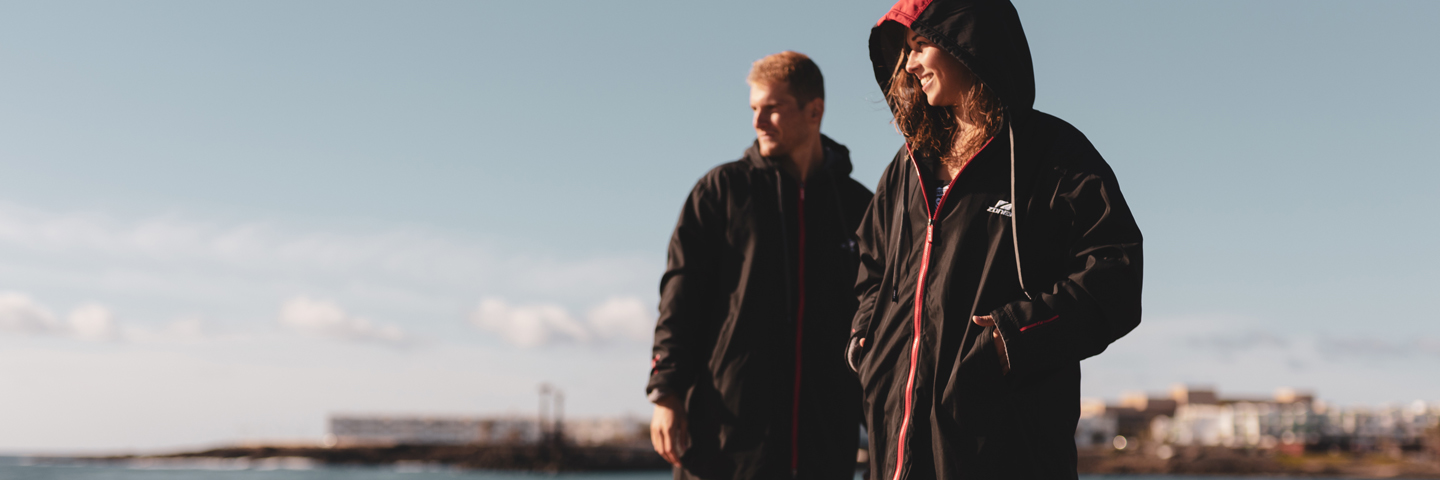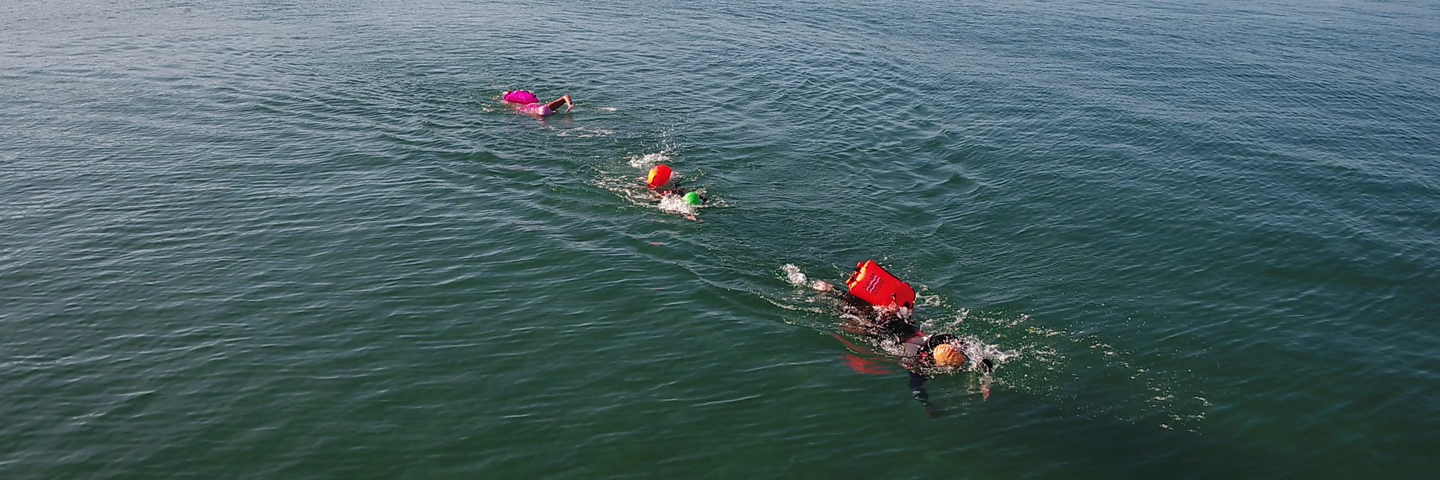Everything You Need To Know About Open Water Swimming
Are you looking for an exciting and new way to exercise? Do you want to reconnect with nature? Then open water swimming could be just what you’re looking for! It’s great for body and mind, is a fun way to explore your local area and best of all, you won’t need to pay any gym memberships!
Open water swimming, also sometimes referred to as wild swimming or cold water swimming, is the act of swimming in any body of open water without any man made sides or structures, such as the sea, rivers or lakes. Thanks to the pandemic, there has been a huge surge in popularity. With local swimming pools and gyms being closed, swimmers and other sports enthusiasts have had to find new ways to exercise in the outdoors. There are also many people who have turned to open water swimming in these difficult times as a way of relieving stress and anxiety and to feel connected to nature.
So when did open water swimming become popular? The sport first came to prominence and began to rise in popularity in the 1800s, with open water swimming even appearing in the very first recorded Olympics in 1896. The sport has gained traction again in recent years with more health benefits being discovered everyday, more media coverage and the aforementioned effect of the pandemic.
If swimming in the sea with your face to the sun and the tranquil sound of waves crashing on the shore sounds like a fun way to exercise, you’d be absolutely right. In this article we’ll tell you everything you need to know about open water swimming - what the benefits are, what you’ll need and how to keep safe. Explore our range of open water swimming essentials.

The Benefits of Open Water Swimming
The Mental Benefits
In recent years, there has been a great deal of new scientific research around open water swimming and the incredible positive effects it can have on our mental wellbeing. It goes without saying that wild or open water swimming will usually involve getting into very cold water. Naturally, we find this difficult and instinctively we want to get straight out. By training ourselves to stay in the water and by increasing the amount of time we spend in it, we are able to increase our tolerance for stress. When we immerse ourselves in cold water, our body produces cortisol and goes into a state of fight or flight. As you stay in the water and adjust, your stress hormones will reduce to a normal level. By repeatedly putting ourselves through this process, we can reduce the initial stress reaction. This will obviously pay dividends in everyday life, lowering our overall stress levels and allowing us to breeze through situations that we would normally find stressful such as exams, flying or work-related problems.
Another way in which cold water swimming can reduce stress is through its mindful qualities. Being in cold water is an intense experience and your brain is unable to think of anything else in this situation. This allows you to be at one with your body, much like during meditation. The brain is not able to wander off and think about depressing bank balances, house chores or work deadlines.
When you get out of the water, your body is hit with happy hormones, giving you a rush of good vibes that can carry you through the rest of the day.
There are endless other benefits to your mental health, including easing depression, improving your confidence, giving you a sense of achievement and many more.
The Physical Benefits
Much like having an ice bath, swimming in cold water reduces inflammation, which in turn can help reduce pain from all kinds of injuries. As a reaction to the colder temperatures, blood is directed away from the limbs to the vital organs for protection. This subsequently reduces inflammation and allows muscles to heal quicker.
Not only does open water swimming help you to burn calories but it actually boosts your immune system too. Many people have claimed that since starting open water swimming they haven’t picked up colds or flu viruses. The science surrounding this is still inconclusive, but it’s possible that the stress response we go through when cold water swimming triggers a growth in white blood cells.
Swimming in the sea is also a great boost for your skin. Salt water is full of wonderful minerals that detoxify and rehydrate the skin. As a mild antiseptic, it also helps to heal damaged or infected skin.

How to Beat the Cold when Open Water Swimming
It goes without saying that you will need to adjust to the lower temperatures when open water swimming. At best, during summer, the temperature of the water in the UK ranges from 15-20°C (59-69°F) and in winter just 6-10°C (42.8-50°F). When getting in, it’s very important to get in slowly, otherwise you will decrease the blood flow to your limbs and your breathing will become rapid. Take it easy and allow your body to adjust bit by bit. Once you’re in, build up the time you spend in the water gradually too, starting with short swims, increasing slightly each time. Eventually your body will know what to expect and will be able to withstand longer periods in the water.
You could invest in a swimming wetsuit, which will keep you warmer and give you more buoyancy making it easier to keep up a good pace. Some people also prefer to wear swimming shoes, which makes it easier to get in and also protect your feet from the sea or river bed. If you do prefer to wear a traditional swimsuit, make sure you’re prepared with a warm towelling robe and some warm layers to put on when you get out.
You could also consider bringing a flask with a warm drink to bring up your temperature. This can make a nice treat after a tiring swim! Keep your flask and other belongings safe on the beach in a waterproof bag - try these excellent ranges from The North Face and Patagonia.

How to Stay Safe when Open Water Swimming
Open water swimming isn’t without its dangers. However as long as you are aware of these dangers and assess the situation before you start swimming, there’s really nothing to worry about.
Open water swimming is suitable for all ages and abilities, as long as you are confident in swimming without needing to touch the ground. You will need to feel comfortable treading water for long periods of time.
There are lots of open water swimming clubs and controlled areas where you can swim with the comfort of a lifeguard. Alternatively, you could team up with a few friends as there is always safety in numbers. If you do choose to go it alone, make sure you tell someone exactly where you’re going and what time you expect to be home.
If you are swimming in the sea, make sure you take note of the tides and how strong the currents are. It’s very easy to drift off course when swimming in the sea and there are a few ways to help stay on course. The easiest is to observe 2 objects on the land and their relation to one another. As you swim, keep checking they are in the same place and adjust accordingly. Eventually, swimming straight will come more naturally.
Another important aspect is visibility. Unlike the pool, there are all sorts of moving dangers in the water such as kayaks and boats. The weather can also make it more difficult to see. Therefore, it’s crucial that others can spot you in the water. Wearing a bright swimming cap is a must. Another essential item to buy is a tow float. These small, bright coloured floats not only make you highly visible to others but offer some much needed relief, taking your weight when you need a rest. Some tow floats even have a waterproof compartment allowing you to take your valuables with you if you’re not comfortable leaving them on shore, such as this Swim Secure Tow Doughnut.

What Do I Need to Start Open Water Swimming?
Our team at Absolute Snow have compiled a check list of Open Water Swimming Essentials. See below for a run down.
-
Bright coloured swimming caps are a great way to increase your visibility and make you more streamline in the water. We recommend this silicone Arena Pro II.
-
It’s really just a matter of preference whether you go for a wetsuit or swimsuit. Whilst wetsuits offer more warmth and buoyancy, they are more effort to get on and off. A traditional swimsuit offers a more invigorating experience and can make you feel more free and easy if you’re used to swimming in the pool. We recommend our Arena swimwear range.
-
You’ll need a good-sized, durable bag for all your swimming essentials. There are some great duffel bags on offer from The North Face and Patagonia. We also recommend our range of Swim Secure bags which not only hold your essentials but double up as a tow float while you’re in the water!
-
This is an essential piece of kit for open water swimmers that makes you visible and keeps you afloat during rest periods. We recommend our Swim Secure tow float range.
-
These practical robes come in many different styles and offer more immediate, all-over warmth and comfort than a traditional beach towel. We recommend our WAVE HAWAII range.
Extras you might want to consider:
Having a hot drink after a cold swim can often be the most rewarding part and will warm you up from the inside. Try our Red Original Insulated Flask.
Now you’re armed with all the knowledge you need to start open water swimming, get out there and join the masses who are improving mind and body in the great open waters of the UK. It’s a unique way to exercise, explore your local area and make new friends.
Swimming goggles protect your eyes in the open water. We have a variety of goggles to suit your environment.
During summer months, make sure you protect your skin. Even though your body temperature is low, being in the water can intensify the sun's rays and make you more prone to sunburn. We recommend our Ultrasun range. Ultrasun are the only sun cream brand in the world to have the BASF EcoSun Pass!
We lose a lot of heat from our heads, so popping on a woolly hat after a swim can warm us up quickly, especially if your hair is a little wet.
Check out our full range of Open Water Swimming Essentials today!
Need further advice? We're here to help!
Check out our Buying Guides for technical tips and tricks.
Visit our Help Centre to speak to our experts.